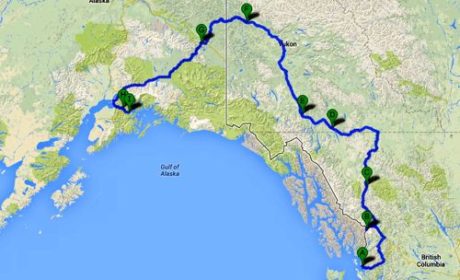Last week, I reviewed a book to help boomers travel safely, Dangerous Instincts: How Gut Feelings Betray Us,
by Mary Ellen O’Toole, PhD. Today, Mary Ellen is back to share 5 tips so that we don’t experience any travel nightmares.
As a former FBI profiler, I think about travel a lot differently than most boomers my age. It’s the instinct of most people to relax when they are away from home. They are often away from the hassles of work and other sources of stress. They are often going to a beautiful location, one they’ve been looking forward to going to for a while. The usual precautions that they often take at home suddenly vanish. They relax into a false sense of safety.
And it can be deadly.
Our instinct to relax and let down our guard when away from home is a dangerous one. After all, we are going to an unfamiliar place full of unfamiliar people. We don’t know many pieces of information that we generally do know at home. For instance, we don’t know the crime problems that are typical in a given area. We don’t always know the basic laws or customs. Sometimes we don’t even know about the types of dangerous animals we might meet.
Indeed, if anything travel requires heightened vigilance. Whenever I travel, I follow these 5 precautions.
1. Learn the laws of the land.
It’s our dangerous instinct to assume that what is allowed in our home country will also be allowed somewhere else. This simply is not the case, though. Some countries are very strict about certain infractions such as drug use and vandalism. Some prescription drugs and over the counter drugs that are legal in the US are illegal in some other counties. In some places, these activities are punished by a severe flogging or even death. Even in a European country where the punishments are not as severe, you still don’t want to ruin your vacation, and possibly the next few years of your life, by getting tangled up in an unfamiliar legal system over something as seemingly minor as an unpaid parking ticket, speeding ticket or something else.
Make sure you know what is against the law where you are traveling and what is not.
2. Thoroughly screen your travel companions.
It’s our dangerous instinct to assume that people who are similar to us don’t pose a threat to us. For instance, boomers tend to trust other boomers. People of faith tend to trust other people of faith and so on. Yet just because someone is a member of your travel club or your age doesn’t mean that someone can’t get you into trouble while you travel together. As soon as you buddy up with someone by sharing a car or a room together, that person’s problems become your problems, too. That’s why you want to take extra precautions to make sure you’ve picked travel companions who are not only in sync with your interests and personality, but who also won’t get you into legal hot water by bringing illegal drugs into a foreign country, disobeying the driving laws or something else.
3. Know the local crime problems.
We like to think that anywhere that is not home is safe and crime free, but this just isn’t true. It’s especially important to be aware of crimes that target tourists. Do people tend to get pick pocketed in a certain area? Is there a scam that uses tour guides as a ruse? Find out as much as you can about the local crime problems so you can anticipate them and avoid problems.
4. Register with the U.S. State Department.
The Smart Traveler Enrollment Program (STEP) is a free government service that allows the Department of State to more effectively assist you in case of an emergency. For instance, let’s say you happened to be in a country when a huge earthquake or another natural disaster hit, The Department of State would know you were there and be able to respond with help. The registration is easy, just go to: https://travelregistration.state.gov/ibrs/ui/. It’s also a good idea to know where the U.S. Embassy is at your destination. Finally, it’s a good idea to purchase travelers insurance that covers airlifting you out of a country if needed for medical reasons.
5. Stay at hotels with a track record for safety
Read all of the online reviews and do research about the best places to stay. If you are traveling to an area for the first time, it’s probably safer to stay in a brand name hotel or resort than a lesser-known hideaway that you can find no reviews on. You can always check out the hideaway while in town and stay there on your next visit if it turns out to be legit.
Thanks to Mary Ellen, Alan and I will be traveling safely on our boomer adventures. Do you have any tips to add to the list? Come join the conversation at the My Itchy Travel Feet page on Facebook. Or send us an email with your thoughts.
Disclosure: I have included an Amazon Link to Dangerous Instincts for your convenience; however, My Itchy Travel Feet does receive a small percentage for purchases made at Amazon.com.


